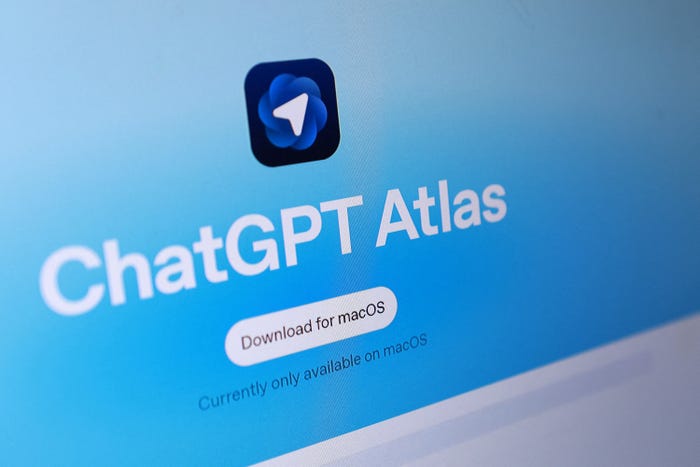Top Stories
OpenAI Launches Atlas: A Game-Changer in Web Browsing NOW

UPDATE: OpenAI has just launched Atlas, a groundbreaking ChatGPT-powered browser, aiming to disrupt Google’s search engine dominance. Officially available for macOS users, Atlas is not just another browser; it promises enhanced personalization and AI capabilities that could reshape how we navigate the web.
In a surprise livestream event on October 10, 2023, OpenAI CEO Sam Altman emphasized that the future of browsing “looks more like a conversation.” He stated, “AI represents a rare, once-a-decade opportunity to rethink what a browser can be.” With more than 800 million ChatGPT users already, the stakes are high as Atlas enters a market dominated by Google’s 3 billion Chrome users.
Atlas features a unique chat-based interface and an innovative “agent mode,” allowing users to delegate tasks such as booking appointments and filling grocery carts. This functionality could significantly alter user habits and challenge traditional browsing methods. Altman explained that the “browser memories” feature sets Atlas apart, enabling the AI to remember visited sites and personalize search results, creating a tailored user experience.
Currently, Atlas is accessible only to Mac users, while the agent mode is limited to Plus, Pro, and Business subscribers. Users can download the app, drag it to their Applications folder, and log in with their ChatGPT account. Upon logging in, Atlas guides users through setup prompts to import data from other browsers and establish preferences.
The implications of this launch are profound. As browsers evolve into AI battlegrounds, startups and tech giants alike are racing to incorporate similar features. Following the announcement, Alphabet’s shares fell by over 2.2%, indicating market concern over the potential impact of Atlas on Google’s revenue.
While Atlas offers innovative features, it also raises privacy concerns. OpenAI product lead Pranav Vishnu addressed these risks during the livestream, assuring users that the AI agent operates within tabs and does not access files on the user’s computer. “Despite all the power and awesome capabilities you get with sharing your browser with ChatGPT, that also imposes an entirely new set of risks,” Vishnu stated.
As the digital landscape evolves, users must weigh the benefits of AI integration against potential privacy hazards. The launch of Atlas could redefine browsing habits, encouraging users to share their experiences and concerns.
With more tech companies eyeing similar integrations, Atlas might just be the beginning of a new era in web navigation. Keep an eye on how this competition unfolds as OpenAI strives to carve a niche in the browser market.
For those eager to explore the future of browsing today, downloading Atlas could be your first step into this new digital age.
-

 Science2 weeks ago
Science2 weeks agoIROS 2025 to Showcase Cutting-Edge Robotics Innovations in China
-

 Politics2 weeks ago
Politics2 weeks agoJudge Considers Dismissal of Chelsea Housing Case Citing AI Flaws
-

 World2 weeks ago
World2 weeks agoBravo Company Veterans Honored with Bronze Medals After 56 Years
-

 Lifestyle2 weeks ago
Lifestyle2 weeks agoStone Island’s Logo Worn by Extremists Sparks Brand Dilemma
-

 Health2 weeks ago
Health2 weeks agoStartup Liberate Bio Secures $31 Million for Next-Gen Therapies
-

 Top Stories2 weeks ago
Top Stories2 weeks agoIndonesia Suspends 27,000 Bank Accounts in Online Gambling Crackdown
-

 Sports2 weeks ago
Sports2 weeks agoMel Kiper Jr. Reveals Top 25 Prospects for 2026 NFL Draft
-

 Health2 weeks ago
Health2 weeks agoTop Hyaluronic Acid Serums for Radiant Skin in 2025
-

 World2 weeks ago
World2 weeks agoHoneywell Predicts Record Demand for Business Jets Over Next Decade
-

 Sports2 weeks ago
Sports2 weeks agoYamamoto’s Mastery Leads Dodgers to 5-1 Victory in NLCS Game 2
-

 Lifestyle2 weeks ago
Lifestyle2 weeks agoMary Morgan Jackson Crowned Little Miss National Peanut Festival 2025
-

 Politics2 weeks ago
Politics2 weeks agoNew Jersey Voters Urged to Register Ahead of November Election









